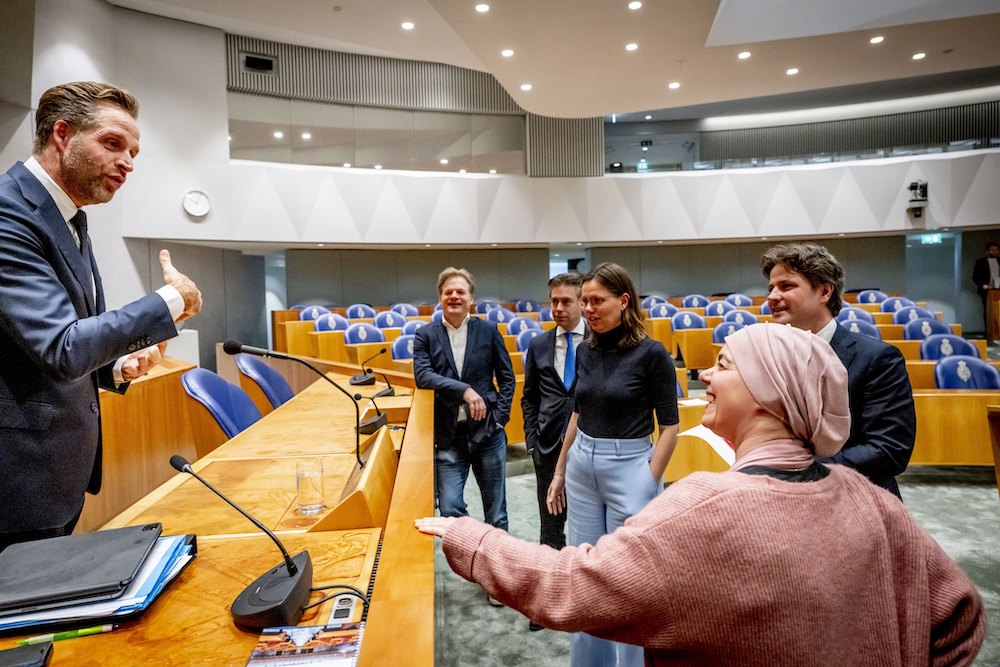De Jonge firm on not naming names in Russian bribery scandal

MPs have again called on the cabinet to come clean on which, if any, Dutch politicians have been paid to promote Russian interests but home affairs minister Hugo de Jonge said during Tuesday night’s debate that it is up to the security services what should be made public.
MPs argue that as long as there is no clarity, Dutch political parties will remain under suspicion and this could hurt the European elections in June.
Last week Czech news website Denik N reported that some far-right politicians had taken money to spread pro-Russian propaganda via the Prague-based news website Voice of Europe, quoting sources in the Czech intelligence service BIS.
BIS did not identify the politicians by name, but Dutch media pointed out that PVV leader Geert Wilders, Forum voor Democratie leader Thierry Baudet and MEP Marcel de Graaff, who has represented both FVD and Wilders’s PVV, had all featured on Voice of Europe.
Wilders called on De Jonge to go “as far as he can” to bring clarity, while BBB leader Caroline van der Plas said “without names and numbers” the uproar could ruin the reputation of parliament.
De Jonge said earlier the cabinet had contacted Czech authorities at the weekend, but no names of “Dutch people or organisations” had been mentioned in connection with the propaganda channel.
He told MPs directly on Tuesday that concerns about foreign interference are justified, pointing out that the AIVD has been warning about the situation for years. But he said he respected the Czech position not to give additional information at present and would not pressure them into doing so.
Former AIVD analyst Hugo Vijver told the NRC in an interview that the Czech authorities may well know more about Russian influence in the Netherlands.
The Czech secret service “probably” has specific information about Russian influence on Dutch politicians, he said, and if the AIVD goes public, it will do so with a specific intention, namely to draw attention to the fact that parties are not transparent about their income, and are therefore extra susceptible to influence from countries like Russia.
Wilders has denied accepting any money from Russia and was at the forefront of efforts to get the minister to come clean. But FvD leader Baudet did not attend Wednesday’s debate.
He is known for his pro-Russia stance and has consistently refused to declare where his party’s income comes from. Nevertheless, ahead of the debate he said on social media that there is “no blackmail, cash, crypto currency, bank payments… and no other link between the FvD and the Kremlin.”
MPs will vote on several motions about the Czech claims next week.
Thank you for donating to DutchNews.nl.
We could not provide the Dutch News service, and keep it free of charge, without the generous support of our readers. Your donations allow us to report on issues you tell us matter, and provide you with a summary of the most important Dutch news each day.
Make a donation